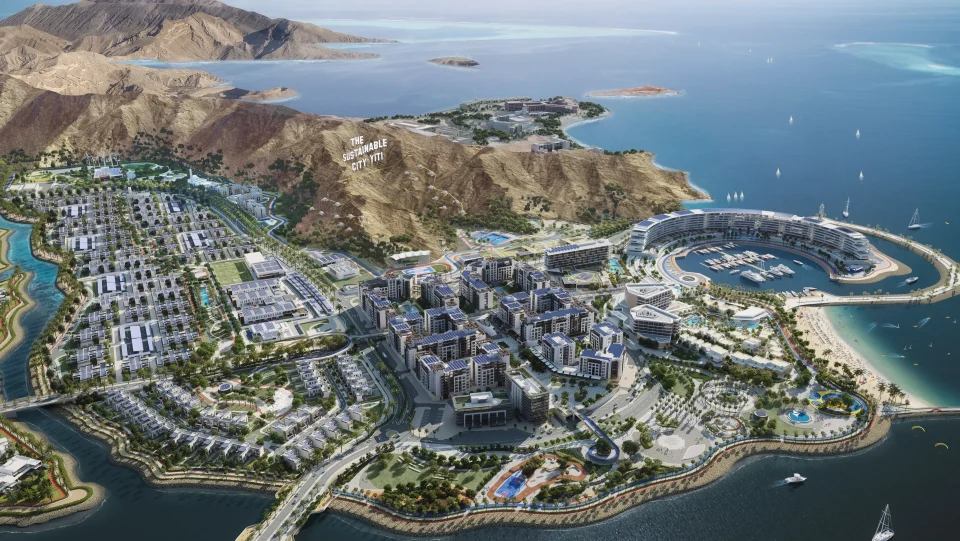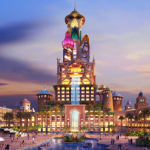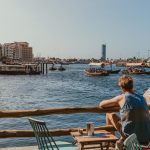Etihad’s shared their impressive sustainability report. While Dubai Reef just deployed its first 1000 reef modules, a commissioned report by ATM reveals that a lot more work needs to be done for sustainable tourism, and urgently too. Meanwhile Oman is on its way to completing its first net-zero energy city and Movenpick Jumeirah Beach is on its 11th year in green leadership.
Etihad releases sustainability report
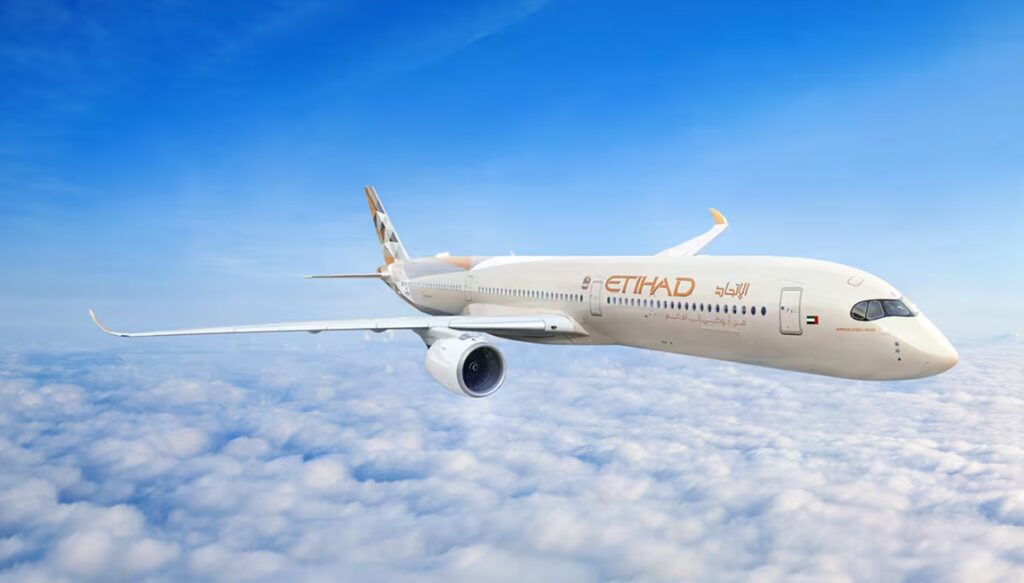
Etihad Airways has released its annual environmental report, highlighting the airline’s significant strides toward reducing carbon emissions and promoting sustainable aviation practices. In 2023, the airline achieved a 45.3% improvement in passenger carbon intensity compared to 2019.
Highlights from the 2023 report:
- Fuel and cost efficiency
- The Fuel Efficiency Working Group achieved a reduction of over 35,000 tonnes of CO₂ through optimised planning, which is equivalent to saving over 11,000 tonnes of fuel.
- More than 1,000 passengers participated in the CarbonClick initiative, collectively offsetting over 1.5 million kilograms of CO₂.
- There was a 45.3% improvement in passenger carbon intensity compared to 2019, resulting in a carbon intensity of 475 grams of CO₂ per Revenue Tonne Kilometre (RTK) for passengers.
- The Boeing Jeppesen FliteDeck Advisor contributed to saving 8,389 tonnes of CO₂ and 2,655 tonnes of fuel.
- The airline achieved an 8% reduction in cost per Available Seat Kilometre, coupled with an 11% improvement in fleet utilisation, reflecting a streamlined and efficient business model.
- Responsible growth and modern fleet
- Etihad demonstrated its commitment to responsible growth through continuous improvements in carbon intensity and fleet transformation efforts.
- The airline’s modern and fuel-efficient fleet underscores its dedication to delivering exceptional service while enhancing environmental performance.
- The average age of the fleet is 7.5 years.
- Sustainability efforts and environmental recognition
- The introduction of Economy Evolution led to the removal of over 233 million single-use plastic items from onboard service.
- The airline planted 182,000 mangrove trees as part of the Etihad Mangrove Forest project.
- Some 36% of onboard products are now sourced locally.
- The implementation of the new Dry Wash method for aircraft resulted in 277 washes, saving 3,500 litres of water per narrowbody aircraft wash and 5,500 litres per widebody aircraft wash.
- The airline maintained a Stage 2 rating in the International Air Transport Association’s (IATA) Environmental Assessment Programme, reflecting its commitment to environmental excellence across all business functions.
Movenpick Jumeirah Beach achieves 11 years of green excellence
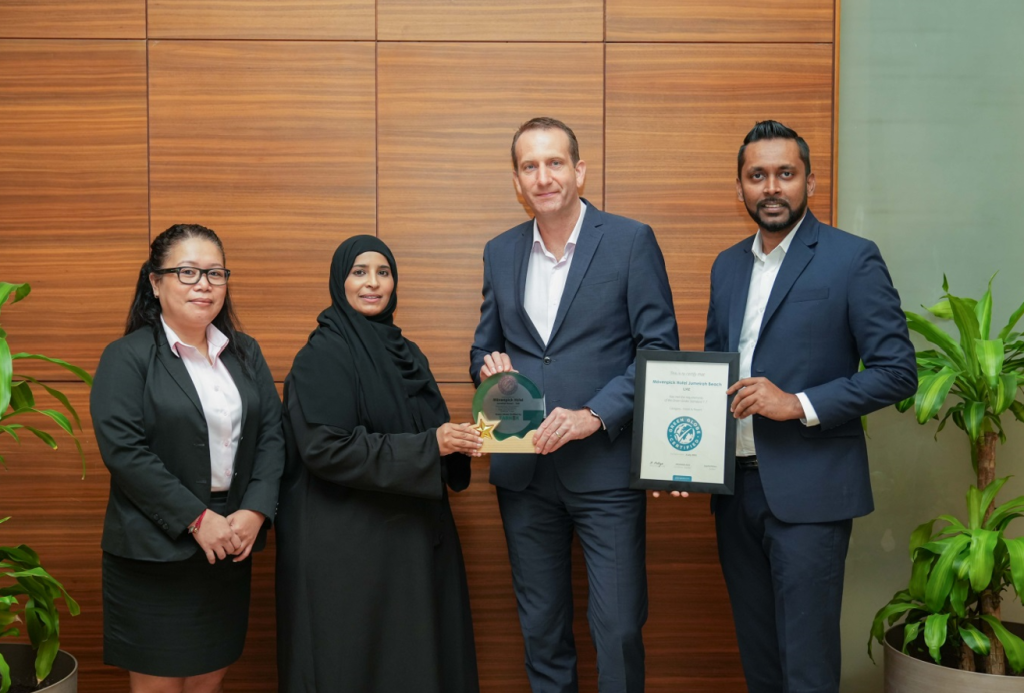
For the eleventh consecutive year, Movenpick Hotel Jumeirah Beach has been certified by Green Globe, the world-renowned sustainability program. This year, the hotel achieved the prestigious Platinum certification, making it one of only two properties in the UAE to hold this distinction. Noteworthy initiatives put in place by hotel management included installing a water bottling plant to eliminate single use plastics, installing sensors and introducing a 100% smoke free environment to improve and monitor indoor air quality, motion sensors in the basement car park and stairwells, waste segregation on each floor, in the hotel’s kitchens and all relevant back of house areas.
Farnek, a leading sustainability consultancy firm, conducted an in-depth energy audit of the property, revealing significant opportunities for energy savings, leading to a projected 10% reduction in energy consumption and a decrease in carbon emissions.
Dubai launches world’s largest artificial reef
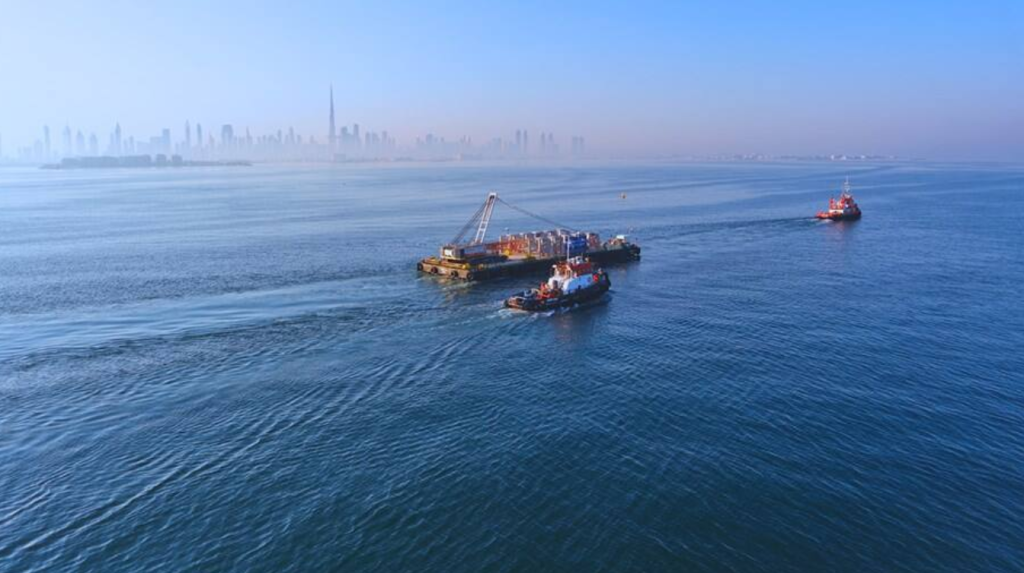
Dubai has launched a groundbreaking initiative, DUBAI REEF, to create the world’s largest single purpose-built reef development. Aimed to enhance marine biodiversity, protect coastal ecosystems, and support fish populations, the project is a collaboration between various government and private sector entities icluding the Dubai Department of Economy and Tourism (DET); Dubai Environment and Climate Change Authority (DECCA); DP World; Dubai Chambers; Nakheel, a member of Dubai Holding’s pioneering real estate arm Dubai Holding Real Estate; Ports, Customs and Free Zone Corporation (PCFC); and Emirates.
The project involves the deployment of 20,000 reef modules over a three-year period, with the 1000 deployed during the launch. The modules, made from sustainable materials, will provide a habitat all sort of marine life, including corals, fish, and other aquatic organisms.
Helal Saeed Almarri, Director General of the Dubai DET, said by establishing a self-sustaining model that optimises the use of marine and coastal natural assets, the project strengthens ecosystem resilience and can be replicated for other destinations.
ATM research reveals more work needed for sustainable tourism
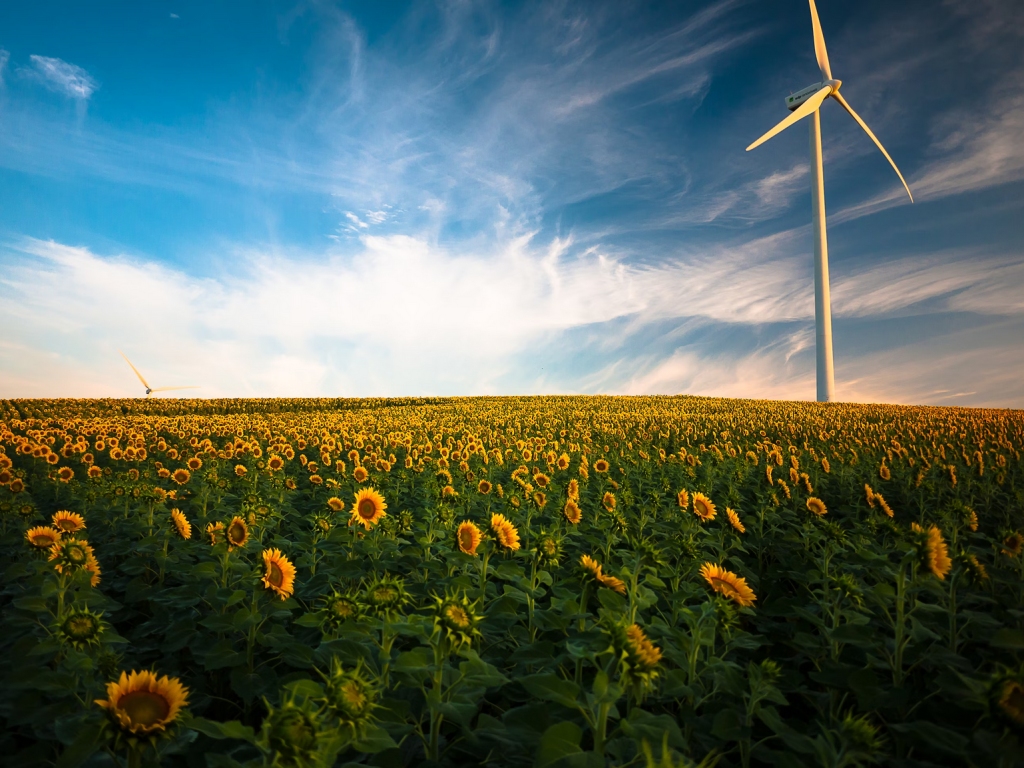
A report commissioned by Arabian Travel Market (ATM) 2025 revealed that only 15% of UN Sustainable Development Goals (SDGs) related to tourism are on track to be achieved by 2030.
Based on a United Nations (UN) research, in a business-as-usual scenario, tourism could generate a 154% increase in energy consumption, a 131% increase in greenhouse gas emissions, a 152% increase in water consumption, and a 251% increase in solid waste, by 2050. This reinforces the importance of increasing investment in sustainable development.
To address these challenges, the whitepaper “Exploring the Future of Tourism Technology” leveraged insights from the 2024 ATM Innovation Wall, where industry professionals shared innovative ideas and solutions, ranging from gamified recycling programs to hyper-personalised, culturally immersive travel experiences.
Leading the way, many governments in the region have already undertaken several initiatives and strategies to focus on tourism and sustainability. They include the UAE Tourism Strategy 2031, the Saudi Vision 2030, the Qatar National Tourism Sector Strategy 2030, the Bahrain Tourism Strategy 2022-2026, the Omani National Tourism Strategy, and the Kuwait 2035 Vision.
Sustainable tourism will remain a key area of focus during ATM 2025 (28 April – 1 May), which takes place under the theme “Global Travel: Developing Tomorrow’s Tourism Through Enhanced Connectivity”.
Read more: How MENA’s travel industry is embracing sustainability
$105.45M secured for The Sustainable City – Yiti in Oman
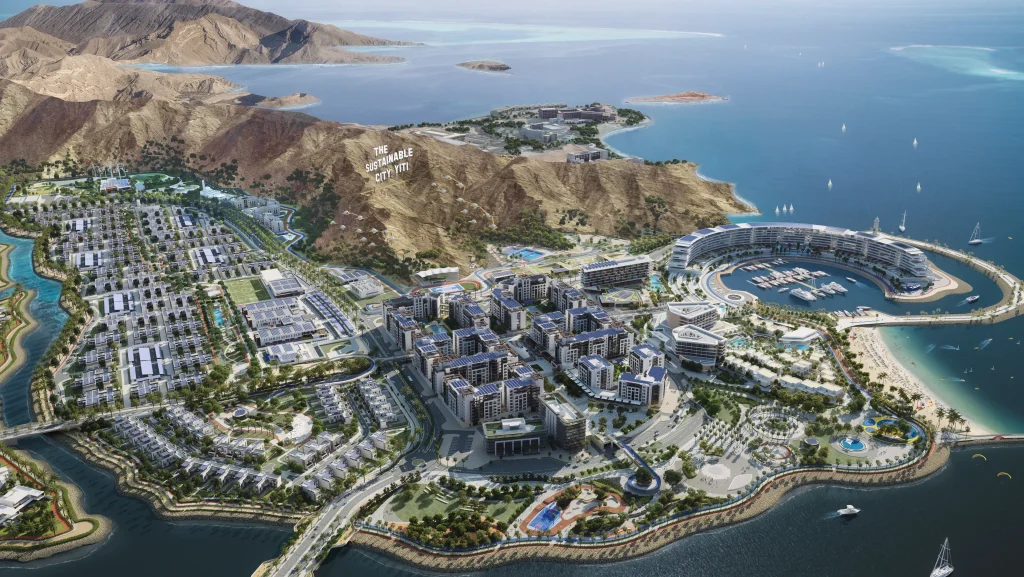
Ahlibank has secured RO40.6M (US$105.45M) to finance the development of 300 residential villas within The Sustainable City – Yiti. A joint venture between the Oman Tourism Development Company and UAE based Diamond Developers, The Sustainable City – Yiti is a net-zero energy development, which will feature 300 eco-friendly villas, promoting clean energy, water conservation, waste reduction, and sustainable transportation. Other amenities and facilities include inddor and outdoor gyms, a cycling track, equestrian club and horse riding track, a hospital, a mosque, playgrounds, swimming pools and more. A four-star hotel and a five-star resort will also be part of the 1M sqm city, as will a Plaza housing a range of retail shops, entertainment and festival venues, as well as dining options. The Sustainable City Yiti, which follows the blueprint for low carbon living pioneered by the first Sustainable City in Dubai in 2016, is expected to complete by 2025.
IFC and ODE boost green tourism in Egypt
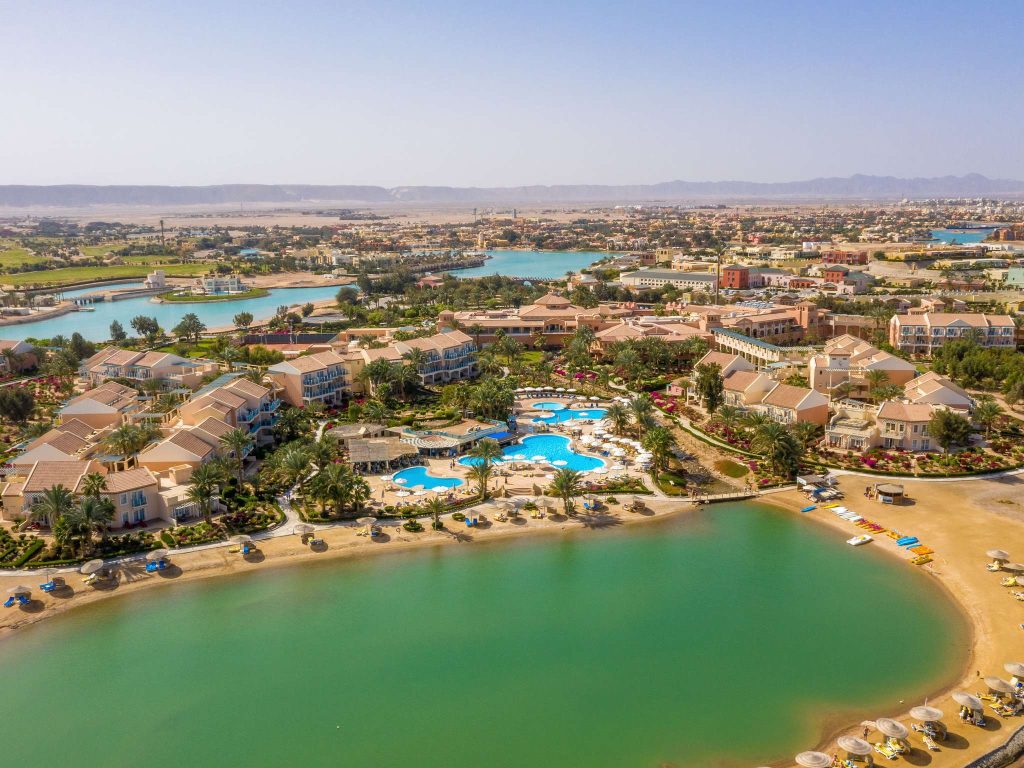
IFC, a member of the World Bank Group, has partnered with Orascom Development Egypt (ODE) to drive sustainable growth in Egypt’s tourism sector. Through a $155 million Sustainability Linked Loan (SLL), IFC will support ODE’s efforts to improve energy and water efficiency, reduce greenhouse gas emissions, and renovate its Mövenpick Resort and Spa in El Gouna, a resort town in Egypt’s Red Sea.
The first-of-its-kind financing solution for a tourism and real estate company in Egypt, IFC will also help ODE to achieve EDGE certification for its hotels in El Gouna, ensuring they meet stringent environmental standards.

